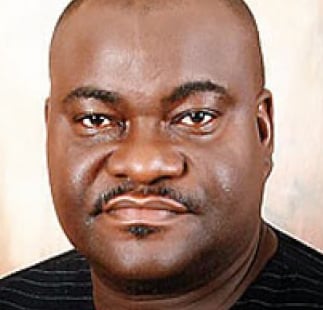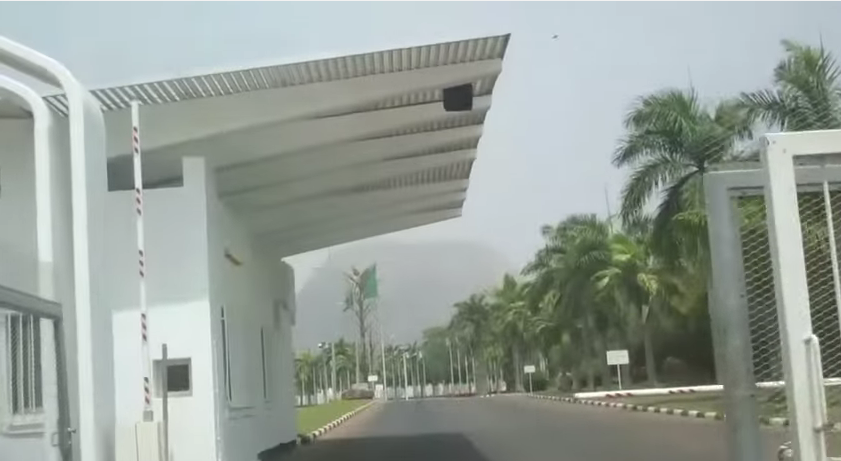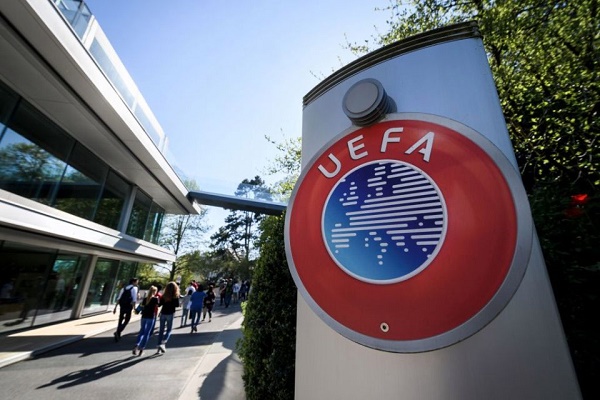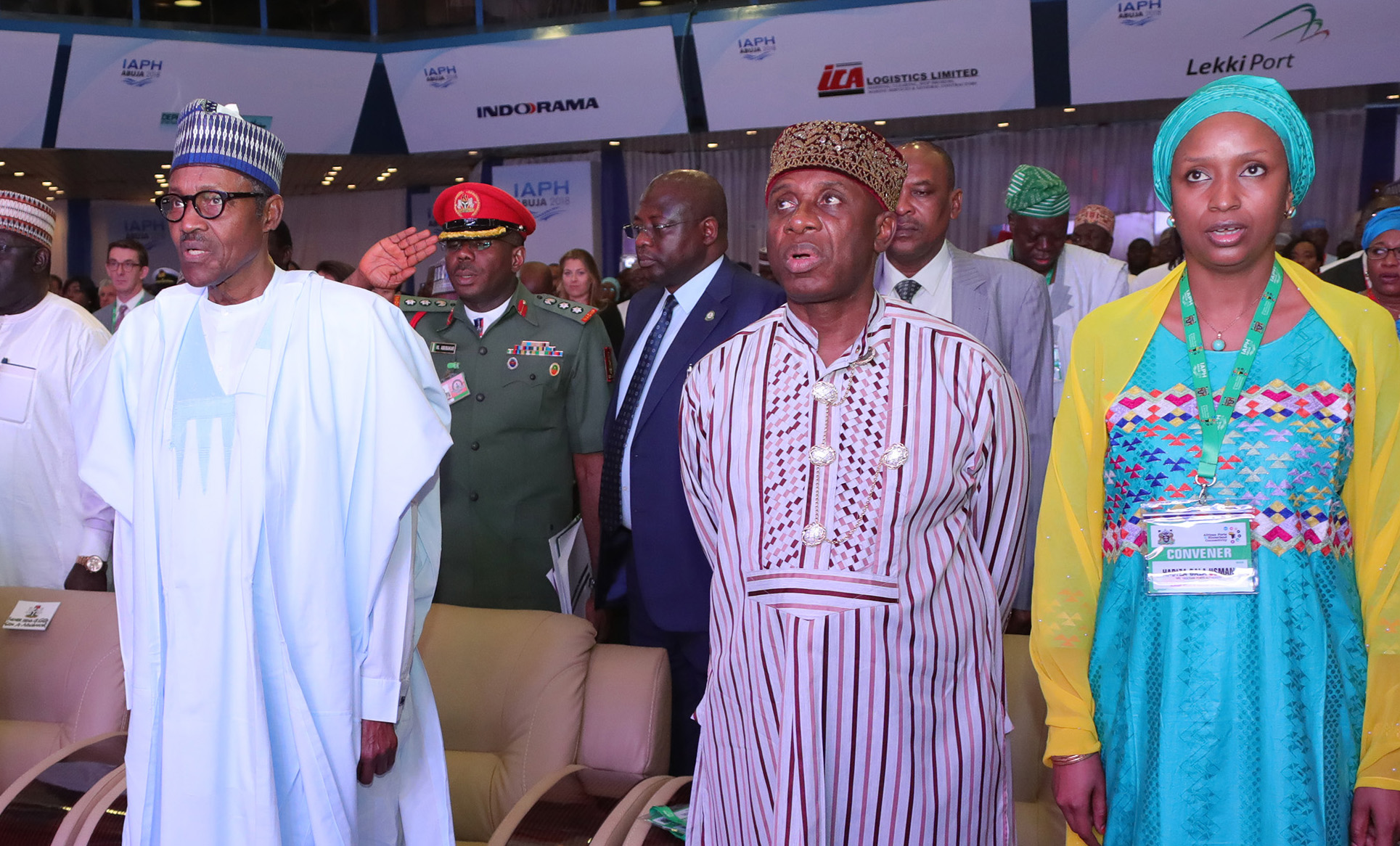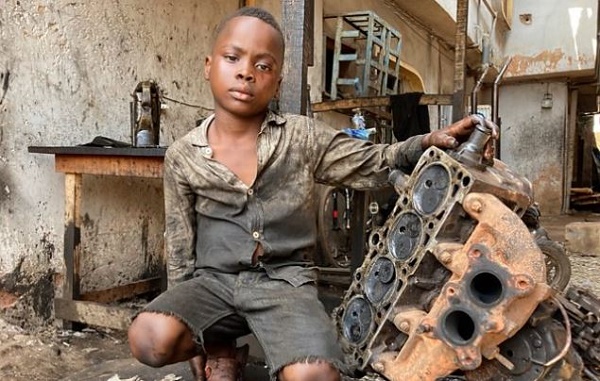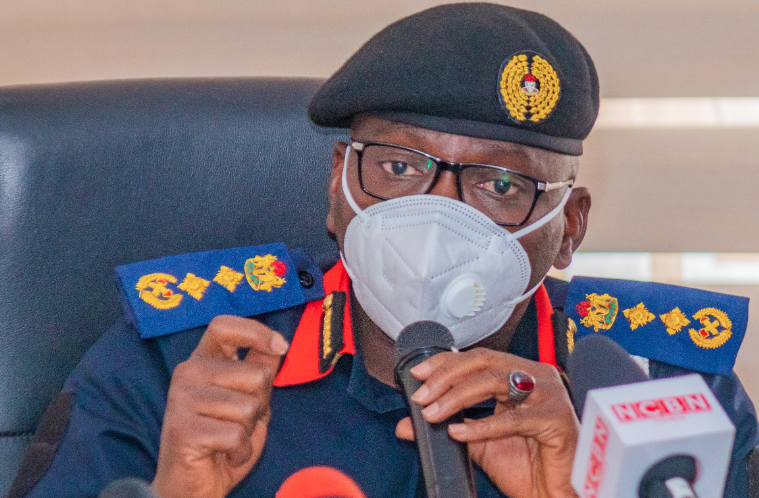If the pace of the the relocation of the seat of government since the formal proclamation of Abuja as the nation’s new federal capital was hitherto slow and sluggish, the events of Sunday April 22, 1990 accelerated the snail-paced process. Murtala Ramat Mohammed, an army general and Nigerian Head of State, had on February 4, 1976, promulgated a law which decreed Abuja as the nation’s new federal capital. Lagos, which had since independence in 1960 served as the Nigerian capital, had become largely unsuitable with accentuating population, urban congestion and intractable traffic snarls, which encumbered the business of governance. Mohammed and his advisers therefore conceived of a brand new capital territory built from scratch, in the manner of Brasilia.
Less than 10 days later, Mohammed, unfortunately, was killed by military coupists on February 13, 1976, as the official vehicle in which he was being chauffeured, was attacked by dissident soldiers on a street within the precincts of his office. Mohammed didn’t live to actualize his dream of a new administrative hub for Nigeria unfortunately, but his successors, Olusegun Obasanjo who replaced him and Shehu Usman Shagari, democratically elected president in consonance with the Mohammed/Obasanjo transition programme, worked for the realisation of this vision.
Indeed as civilian President, Shagari operated in the main from Abuja to give impetus to the sustained development of the newland. Whatever progress Shagari made in growing the new capital, however, was swiftly reversed by the overthrow of his government, three months into its renewed mandate, December 31, 1983. Muhammadu Buhari, a Major General and General Officer Commanding Third Armoured Division of the Nigerian Army, Jos, emerged his successor. His administration which was also terminated in another military coup August 27, 1985, had little time for the sustenance of the development of the new capital.
If Ibrahim Badamasi Babangida who succeeded Buhari had become overly attached to the coastal allure and skyscraping delight of Lagos, he received a rude shock Sunday April 22, 1990. On that day, a group of mid-level young military officers led by Gideon Gwaza Orkar, a Major in the Nigerian Army, attempted a violent overthrow of his administration. Fortuitously, Babangida the principal target of the coupists survived the coup. His aide-de-camp, Lt. Col. U.K. Bello, however was not as fortunate because he died protecting his boss.
Advertisement
That singular incident thoroughly shook Babangida who, historically, had the dreaded reputation of being an active participant in every coup in Nigeria, post-independence. Babangida must have reminded himself about the elimination of one of his idols, military superior and predecessor, Mohammed, on the streets of Lagos, fourteen years before the attempt on his life. Babangida would subsequently fast-track developmental efforts in Abuja. He paid particular attention to the fine details of making the upcoming office and residence of the President, Commander-in-Chief, virtually impregnable. The new State House being developed therefore, would address the shortcomings of Dodan Barracks, Ikoyi, Lagos, where all post-independence Nigerian leaders, military and civilian, preferred as their office and abode.
Babangida formally transferred the capital to Abuja on December 12, 1991, a few months short of the second anniversary of the coup attempt on him. I have noted in a piece titled “Obasanjo, Democracy and the New Aso Rock,” that the sprawling complex was peculiarly fortified. The piece is published in a book titled *On The Trail Of History: A Reporter’s Notebook On Olusegun Obasanjo,* authored by me and published in 2006.
I had said inter alia that The Villa lies *ensconced between an intricate formation of domineering rocks, hedged round by a man-made canal and shielded from easy view by trees and shrubs.* My good friend and colleague during our days in the State House, Handel Okoli indeed once commented thus: *My brother, this place is a fortress, no mistakes about it. Whoever conceived it made no pretences about his background in the military and intelligence… It is a garrison, pure and simple.*
Advertisement
Aso Villa in recent times, however, has become the butt of jokes, insults, innuendos, abuse and denigration, in the recent past for a myriad of reasons. The dramas and developments, periodically emanating therefrom, are the stuff of tragicomedy. These vary from the comical, to the absurd, to the preposterous, to the simply unimaginable. You are alarmed for instance, when strictly private and personal goings-on in Nigeria’s own Capitol Hill, begin to dance around in the social media. Today, the wife of the President, Aisha Buhari, could be up in arms against those who locked her out of her apartment in the State House, on her return from a holiday! And you wonder who on earth has the temerity to bolt the doors behind the wife of the nation’s Number One citizen and throw the keys into Usuma Dam.
Tomorrow, rats and cockroaches have chased the President himself away from his office, such that he is “squatting” in an office in the First Lady’s wing of the Villa, attending to matters of state there. The President by the way, had been away in the United Kingdom for 100 good days on medical leave, while his deputy stood in for him. If his work station had been allowed to degenerate so much so that rodents and roaches had found a new abode there, you wonder if he was ever expected back on his seat.
Before you sip a drink on that one, the rumour mill goes into overdrive once again that the President is purportedly taking a new wife! The story goes that his substantive wife has been out of the country for so many months and arrangements have been perfected for him to take one of his female ministers, Sadia Umar Farouk who is in-charge of Humanitarian Affairs, Disaster Management and Social Development, as his new spouse. He is 79 while she is 46, but that wouldn’t matter. A time and date is fixed, while the venue will be the Central Mosque, Abuja.
A short while after, shooting, yes, gunfire is reported in Aso Villa. The First Lady has issues with the President’s nephew and his closest aide to wit, Sabiu Yusuf who also goes by the nickname “Tunde Idiagbon.” The story goes that Tunde who just returned from a visit to Lagos at the height of the COVID-19 menace, had refused to self-isolate as necessary precaution in the management of the scourge. The First Lady is paranoid that he might infect members of the first family since he has free access to them, so she wants him forcefully ejected from The Villa. Security aides attached to the First Lady therefore make a public display of raw power, to the embarrassment and chagrin of Nigerians.
Advertisement
One evening in February last year, Laetitia Dagan an Assistant Director in the State House, was murdered in her accommodation in Abuja, a few hours after she returned from work. There were conflicting suggestions about why she was killed, with one school of thought proposing that some miscreants in her neighbourhood took her out because she reported their suspicious activities to the police. Also advanced as reason was the fact that the leakage of some vital documents in her department was traced to her and those affected arranged for her murder.
Only recently, the chief driver to the President, Saidu Afaka, a Master Warrant Officer in the Nigerian Army, died in suspicious circumstances at the State House Clinic, Abuja. Afaka was said to have tricked his Principal to sign a document which fetched him $30,000 from the Nigerian National Petroleum Corporation, NNPC. Information reportedly got to the former aide-de-camp, ADC to the President, Col Mohammed Lawal Abubakar, who requested the Department of State Services, DSS, to investigate the matter. Afaka was allegedly tortured while in the custody of the DSS, which necessitated his transfer to the State House Clinic, where he died. Such is the diversity and multiplicity of happenings at the seat of power.
Early on Monday May 10, 2021, a news report made the rounds to the effect that the residence of the Chief of Staff to the President, Professor Ibrahim Agboola Gambari, on the immediate precincts of the Presidential Villa, was breached by a stranger, earlier that day. Could this have happened in the self same Villa you know so well about? Garba Shehu, spokesman to the President, confirms there “was a foolish attempt” on the house of the COS at about 3am that Monday morning. A few days earlier, on Thursday May 6, 2021, there was a similar attempt on the residence of Maikano Abdullahi, a retired Director of the Department of State Services, DSS, who resides on the same street with Gambari. While there was an effort to play down the incident, it emerged that the burglar(s), since two houses were involved in just a matter of days in between, made away with generous sums of money.
Attempts have been made to distinguish between private and official residences on the immediate outer perimeter of the State House, and the inner recesses of the complex where the President lives with his family and operates from. That outer periphery is home to a section of the Nigerian elite including serving and retired governors, ministers, senior bureaucrats and so on. Access to that outer ring is only granted after scrutiny and questioning, at the two public entrances to The Villa either from the direction of the Federal Secretariat or the one from high brow Asokoro District, abode of Nigeria’s nouveau riche. Both exits are manned by officers from the secret and uniformed police, and indeed the military to underscore the security outlay of the place.
Advertisement
Another exit which should have been the tripod of accesses to the State House, the gate closest to the DSS headquarters, was sealed from public use at the height of nationwide bombings which characterised the Jonathan years. Such is the security cordon around and about the Villa.
Indeed, not only are the accesses to the nation’s seat of power so vulnerable as per the recent trespass into the residences of senior presidential aides, the confidentiality and security of official correspondences and communication are suspect. Classified documents are available for free on the internet, while food vendors wrap their wares with them around town.
Advertisement
There is an effort to play down the twin invasion of the residences of two top shots in the administration of President Buhari. An impression is being created that both incidents don’t matter. The argument is that the space where the trespasses were committed, are not the immediate space of the President and his family. For the avoidance of doubt and without being immodest, I served as a presidential aide in this same Aso Villa between 1999 and 2007, in the official secretariat of the President, next door to his office, so I have a fair idea of the environment and it’s workings. This attempt to make light of this development is the crux of the matter.
The last few weeks have arguably been most traumatizing, most heartwrenching for Nigerians in a long while. Kidnappings in tertiary institutions; killings of innocent young people; abductions in communities and on the highways and attacks on innocent civilians and security forces across the country, have dominated the headlines. Security assets with particular reference to police stations and personnel, even a general disdain for uniformed officers across services, have become the order of the day. Murderous bandits and hoodlums are enjoying free reign across the land.
Advertisement
Days ago, the Niger State governor, Abubakar Sani Bello, formally notified Nigerians that Boko Haram insurgents were a whistling distance from Abuja, having encamped in communities just two hours away. The renowned economist and public scholar, Professor Pat Utomi indeed warned that Abuja could be hijacked by insurgents who might as well hoist their flag in Aso Rock if appropriate strategies are not deployed to root out the menace decisively. Whether it “was a foolish attempt” to burgle the home of the Chief of Staff or it was an armed robbery, the fact that it ever happened at all, is cause for genuine worry.
In June 2011, less than a month after the inauguration of Goodluck Jonathan as President, a suicide bomber rigged himself into the convoy of the Inspector General of Police, IGP, Hafiz Ringim. His intention was to kill the IGP and bring down the *Louis Edet* skyscraper, headquarters of the Nigeria Police Force, NPF. Fortuitously, the IGP survived the attack. A policeman, was, however killed, while half a dozen others were injured. Thirty vehicles in the parking lot of the force headquarters were also incinerated.
Advertisement
When explosives went off in Ikeja Cantonment, in Lagos, way back in 2001, the earthquaking blasts and thunderous reverberations were so loud that Lagos residents across the intertwined communities, felt the impact. There were indeed fears for the safety and security of President Olusegun Obasanjo who was on a weekend on his farmhouse in Otta, Ogun State, far from vicinity of impact.
Aso Villa occupies a position of reverence in the public consciousness. It is the most fortified, most manned, most guarded, most secured space per square meter in Nigeria. The brigade of guards which is specifically dedicated to the protection of the seat of power, is commanded by a senior officer not below the rank of Brigadier General. From the police are squadrons from the mobile command, the counterterrorism unit and the bomb disposal squad among others. The DSS has it’s operatives functioning as presidential bodyguards and involved in managing human traffic in the State House. Intelligence agencies like the Defence Intelligence Agency, DIA and the National Intelligence Agency, NIA, are on the security architecture of the State House. Apart from these agents of state, individual house owners in the private homes abutting the Villa, have their own security personnel and security surveillance equipment structures.
If freelance miscreants can as much as stray into the physical space of residences and offices in close proximity to Aso Villa, therefore, there is genuine cause for worry. With recent insinuations about the feasibility of a putsch which will be robustly resisted by the generality of Nigerians, with Boko Haram anarchists just an earshot away, this development cannot be dismissed with the wave of a hand. These non-essentials may be “testing the microphones” as a prelude to a much bigger plot.
Security around the nation’s security has never been so lax, so threatened. There is genuine public apprehension about the recent demystification of the seat of power and authority.
Government as a matter of utmost urgency, must review its security manual to engender public confidence in its ability to protect the people it swore to safeguard. It will be plain abominable to wake up one day to the news of the occupation of our very own Aso Villa, by vagrants and vagabonds. This is a wake up call.
Tunde Olusunle, PhD, journalist, poet and scholar, is a former presidential aide.
Add a comment
